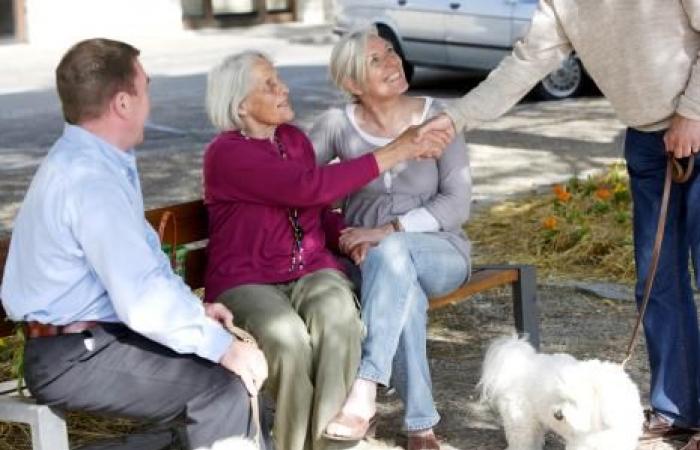For Professor Armelle Gentric, the point is understood: aging well must be learned from childhood, throughout life. “ We grow old from the day we are conceived” recalls the Brest geriatrician. “Health promotion does not only concern health professionals. National Education should participate so that health education is taught very early in school. But we clearly see that with the current lifestyle, the addiction to screens and the sedentary lifestyle of young people, we are going against what we would like. »
The pathologies of the elderly are the consequence of the accumulation of risk factors over time: being hypertensive at 30-40 years old quadruples the risk of Alzheimer’s disease at 75 years old…
Being hypertensive at age 30-40 quadruples the risk of Alzheimer’s disease at age 75
Messages to rethink
Another issue to think about is the prevention messages themselves. How to convey them and with what content so that people do not feel constrained or guilty? We must take into account the environmental, socio-cultural, economic context, etc. “Public health messages, when delivered vertically, do not reach their target and do not change behavior. Research needs to be done on their real impact. How are they received, integrated and implemented in life? Which communication vector to favor? We need global thinking with all stakeholders, starting with users. »
A telling example is the prevention of falls among the elderly, which lead to 130,000 hospitalizations and 12,000 deaths each year. Numerous roadmaps have focused on this, since the 2005 HAS recommendations for general practitioners (which recommended annual screening using a question on the history of falls in the year and the Get up and test go) until the recent national anti-fall plan for the elderly which aimed to reduce fatal falls or falls leading to hospitalization by 20% in three years. A goal that has not been achieved. “Faced with this problem, plans come one after the other and in my practice nothing changes… I see people arriving at the hospital who have already fallen 3-4 times before, it’s desperate,” deplores Professor Armelle Gentric.
Develop training
Likewise, “the experimentation of the Icope program to identify factors of fragility among seniors has shown the difficulties of application in real life of the Brest CPTS”, she regrets.
The Brest Faculty of Medicine and Health Sciences has been a pioneer in this field since 2017. A Health Prevention department has been created. The objective is to bring together and train not only health professionals but also all citizens who want to get involved in prevention and become actors in their health.
“For health professionals, the DU Prévention en santé initially created in Brest will be deployed in 2025 in Angers, Lille, Nantes and Rennes. We are also setting up short health prevention training courses for the public” explains Professor Armelle Gentric, who is increasing initiatives for medical students in initial training as well as for professionals in continuing training.
Interview with Professor Armelle Gentric (CHU Brest)






